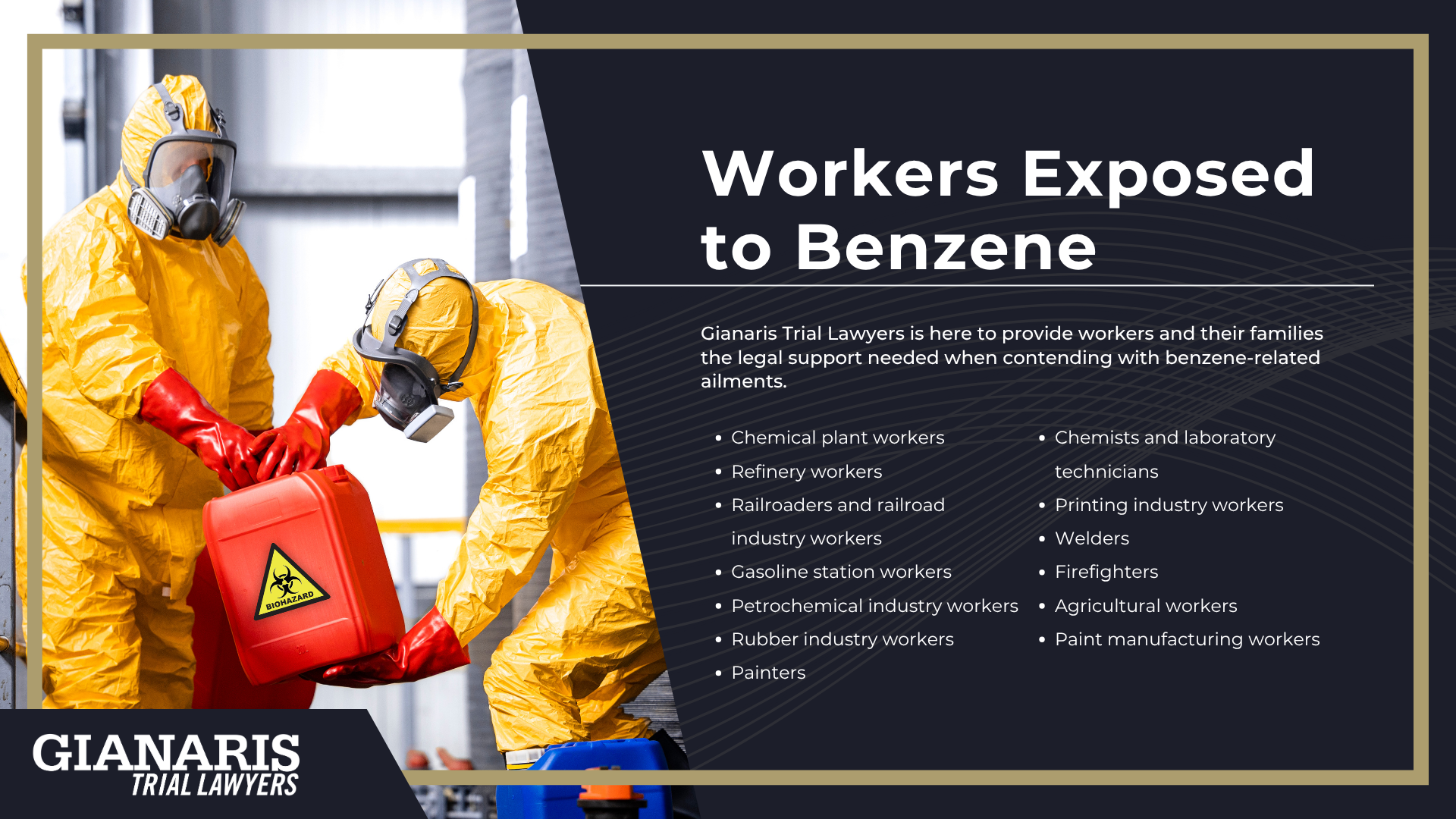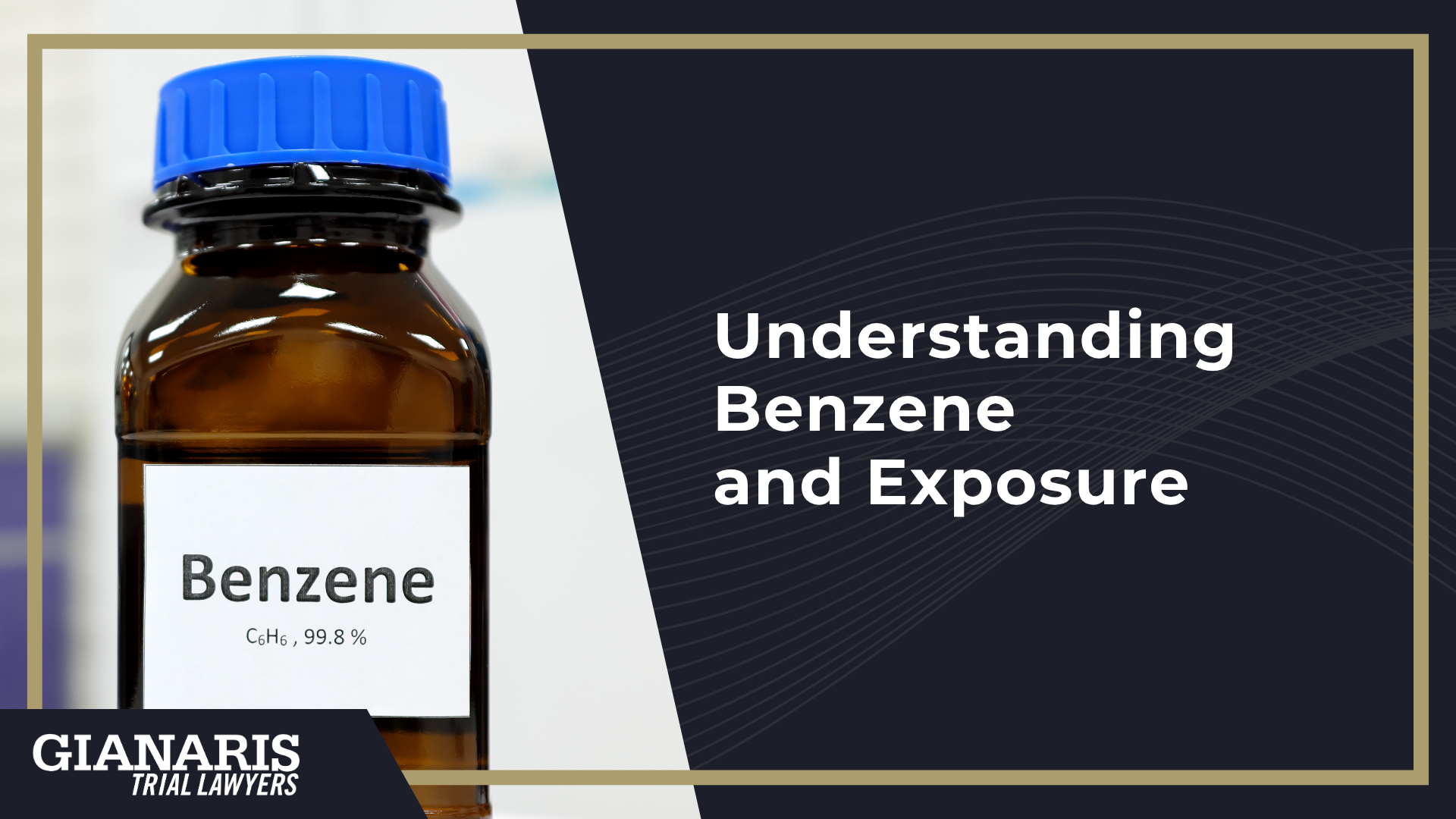Workers in industries such as petrochemicals, rubber manufacturing, shoe manufacturing, and oil refineries are often at a higher risk of benzene exposure.
Those involved in shipping or storage of benzene and benzene-containing products are also susceptible.
Gianaris Trial Lawyers is here to provide workers and their families the legal support needed when contending with benzene-related ailments.

Chemical plant workers: These professionals handle and process benzene as part of their job responsibilities. They may work in plants that produce petrochemicals, plastics, rubber, and other chemical products.
Refinery workers: Benzene is a component found in crude oil and is commonly present in oil refineries. Workers involved in refining processes, such as distillation, reforming, and cracking, may be exposed to benzene.
Railroaders and railroad industry workers: Jobs on the railroad face a multitude of toxic exposures from chemicals to dust such as benzene, diesel exhaust, solvents, creosote, herbicides, silica dust and asbestos dust.
Gasoline station workers: Those employed at gasoline stations may have occupational exposure to benzene due to the handling and storage of gasoline, which contains varying amounts of benzene.
Petrochemical industry workers: Professionals involved in the production of various chemicals derived from petroleum, such as styrene, ethylbenzene, and cyclohexane, may have exposure to benzene.
Rubber industry workers: Benzene is often used as a solvent and in the production of rubber products, including tires, hoses, and conveyor belts. Workers involved in the manufacturing process may come in contact with benzene.
Painters: Some paints, primarily oil-based paints, may contain benzene. Painters who use such paints regularly may have inhalation exposure to benzene.
Industrial cleaners: Certain cleaning agents used in industries may contain benzene. Industrial cleaners who use or handle these chemicals may have exposure to benzene.
Chemists and laboratory technicians: Professionals working in laboratories where benzene or benzene-containing compounds are used for research, testing, or analysis may have exposure to benzene during their work activities.
Printing industry workers: Benzene is often used as a solvent in printing inks, especially those used in flexography and gravure printing. Printers who handle these inks may have exposure to benzene.
Welders: Benzene can be produced as a byproduct when welding various materials, especially those containing hydrocarbons. Welders who work with benzene-containing materials may have exposure to benzene through inhalation.
Firefighters: Benzene is released into the air during fires involving materials that contain it. Firefighters involved in firefighting and rescue operations where such fires occur may have exposure to benzene.
Agricultural workers: Pesticides and herbicides used in agriculture may contain benzene or benzene-related compounds. Workers involved in applying these chemicals or working in fields treated with them may have exposure to benzene.
Paint manufacturing workers: Benzene can be used as a solvent or a raw material in the production







